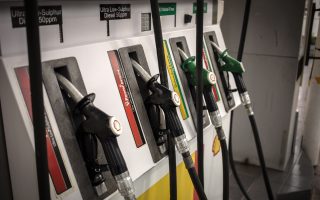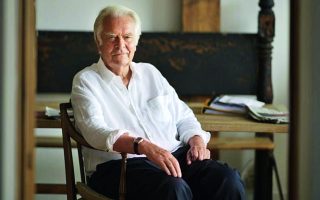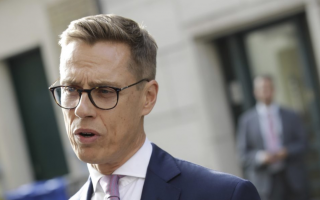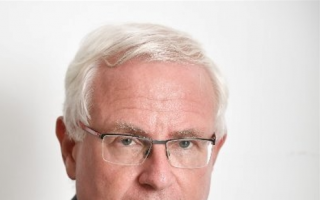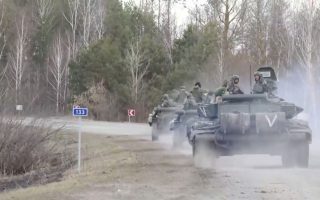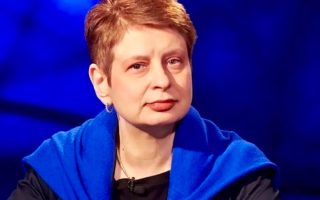‘Europe is waking up from its dream’
The director of research at Sciences Po in Paris talks about the geopolitical impact of Russian aggression
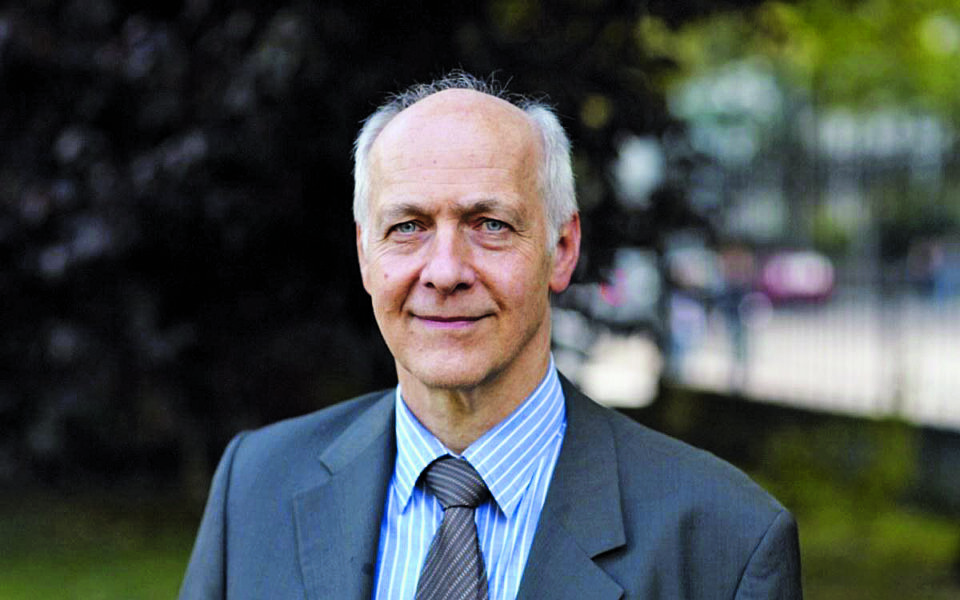
One of the preeminent political scientists in Europe and director of research at Sciences Po in Paris, Jacques Rupnik talks to Kathimerini about the tectonic shift that has been taking place in Europe following the Russian invasion of Ukraine.
“Europe is waking up from its dream. And the dream of Europe was that it saw itself only as a peace project,” he says. “Post-war France and Germany got together to create a project that would make war impossible. It was not an easy thing to do but they succeeded.” He adds that this project worked until Europe started to face new challenges, first from the Middle East, the Islamic fundamentalism and the war in Syria that caused a major refugee crisis and now from the invasion in Ukraine. Professor Rupnik is a realist. “We may want to ban geopolitics and power politics in our minds but we have it on our doorsteps. So, we discovered that we have to add something else to this peace project, and that is security and defense.”
‘We wanted to be vegetarians but our neighbors are not. So we have to adapt and to be prepared to change our diet’
The awakening was rather abrupt and unforeseen. Germany suddenly decided to rearm, an unprecedented shift in thinking that ended an almost 80-year tradition. What happened to the liberal idea that trade is here to improve international relations and consign conflicts to the dustbin of history? “This whole idea of peace through commerce reached its limits. We discovered that we do a lot of commerce with a number of countries, especially with Russia, but it does not necessarily lead us to peace. So now we are forced to rethink the fundamentals.” Rethinking the fundamentals in the midst of his election campaign and after spending a few awkward hours at the other end of Vladimir Putin’s famous table, French President Emmanuel Macron started talking about “strategic autonomy” and “European sovereignty.” Naturally, Rupnik is in favor of this approach. “We have to better define what European sovereignty means, but basically it means a shared sovereignty between the national and the European level and we saw that happening first in the pandemic. Sadly, this idea of shared sovereignty was not there during the Greek crisis 12 years ago. But now this is a real revolution in thinking in Europe.”
Clearly, Professor Rupnik believes that the Ukraine crisis gave the critical push for Europe to consider itself not just an economic entity but also a major actor in international politics. Does that mean Europe will be more aware of its own borders and far more assertive in defending them? Greece would only celebrate such a change of heart. “Yes, I think that is the logic. People should have thought of that when Schengen was established and when the asylum procedures in Dublin were decided. They didn’t and eventually 2015 came, the massive influx of 1 million people into Europe happened. That’s when the thinking started to change. We realized that we needed to have a common response.”
However, he denies that he is optimistic. “We are facing the return of tragedy in European politics. When I say Europe is waking up from its dream, I would also say that it was a dream that is being confronted by a tragic nightmare. Because it is a nightmare, what is happening right now in Ukraine. It will not go away in the next week or so. Europeans have to wake up from their dream. In short, we wanted to be vegetarians but our neighbors are not. So we have to adapt and to be prepared to change our diet.”
Changing our diet or not, Ukraine seems increasingly like a vortex sucking up all the great powers. Is he worried? “I’m anxious about things that can happen. Putin used to be described as a kind of brutish personality who is also a chess player. But it turns out he’s a thug and an aggressor. A chess player is somebody who knows not just the next move. He knows the next three, four, five moves. I don’t have the feeling that we are dealing with this, rational, chess player. Another reason to be anxious is because accidents happen. We should be anxious but we should not panic. NATO has been very clear that it is not engaged in a war.”
Let’s hope so. For now, one of the unintended consequences of Russia’s invasion is the strengthening of Ukraine’s national identity. “Putin will go down in history as a great nation builder of Ukraine. He is uniting the Ukrainians. Ukrainians were diverse regionally, linguistically, in all sorts of ways. But a nation is often built in opposition to somebody. He is creating precisely what he wanted to prevent.”
Professor Rupnik was a special adviser to Vaclav Havel in the 1990s. I ask him what Havel would have suggested for a solution to the crisis right now. “He was always saying that Ukraine is a complex country at the limits between different civilizations and different political projects. And he was always insisting that it should not be up to us to decide if Ukraine should be like this or that. We should let the Ukrainians choose for themselves.”
